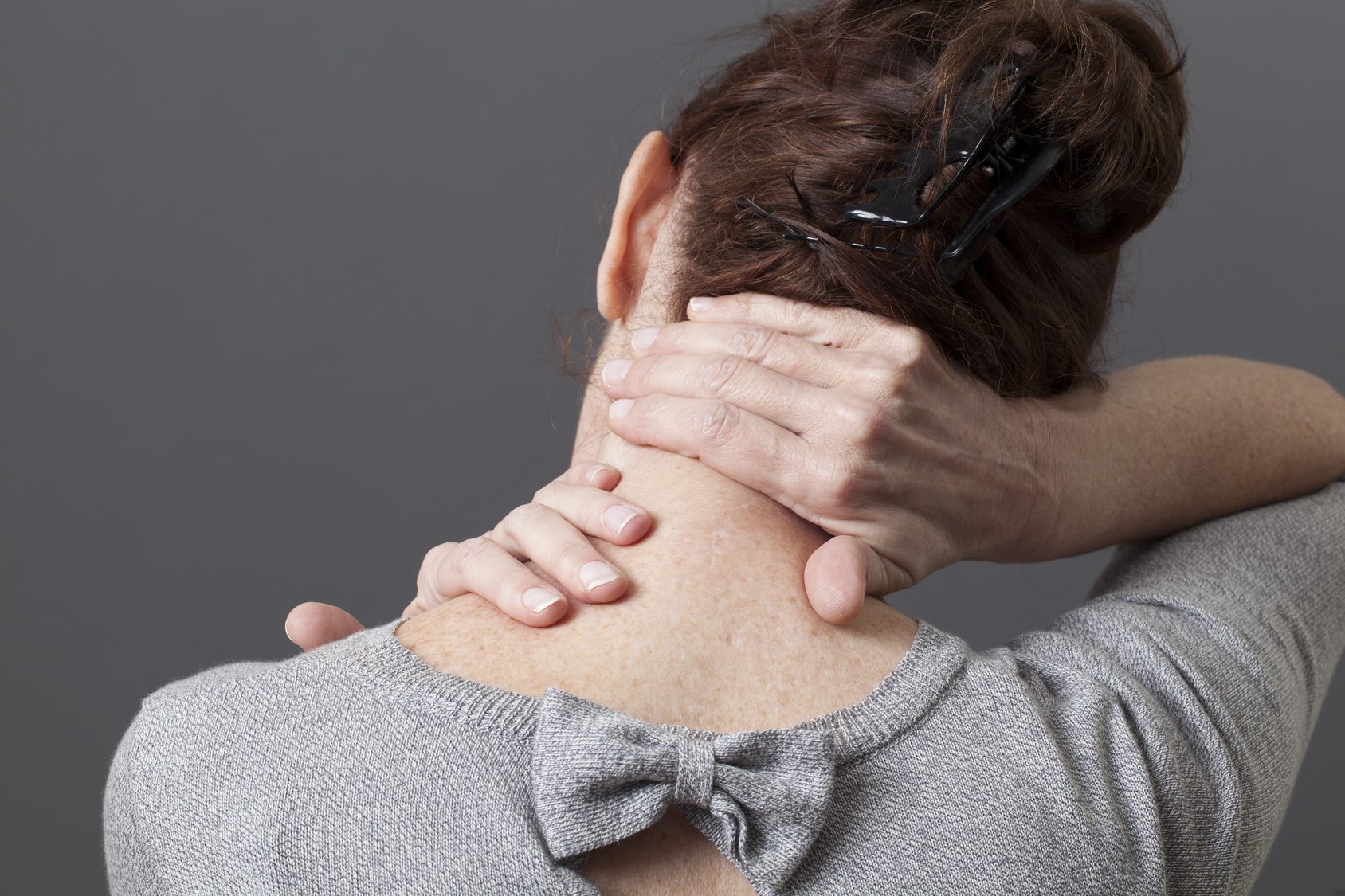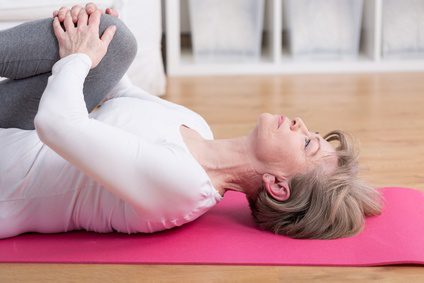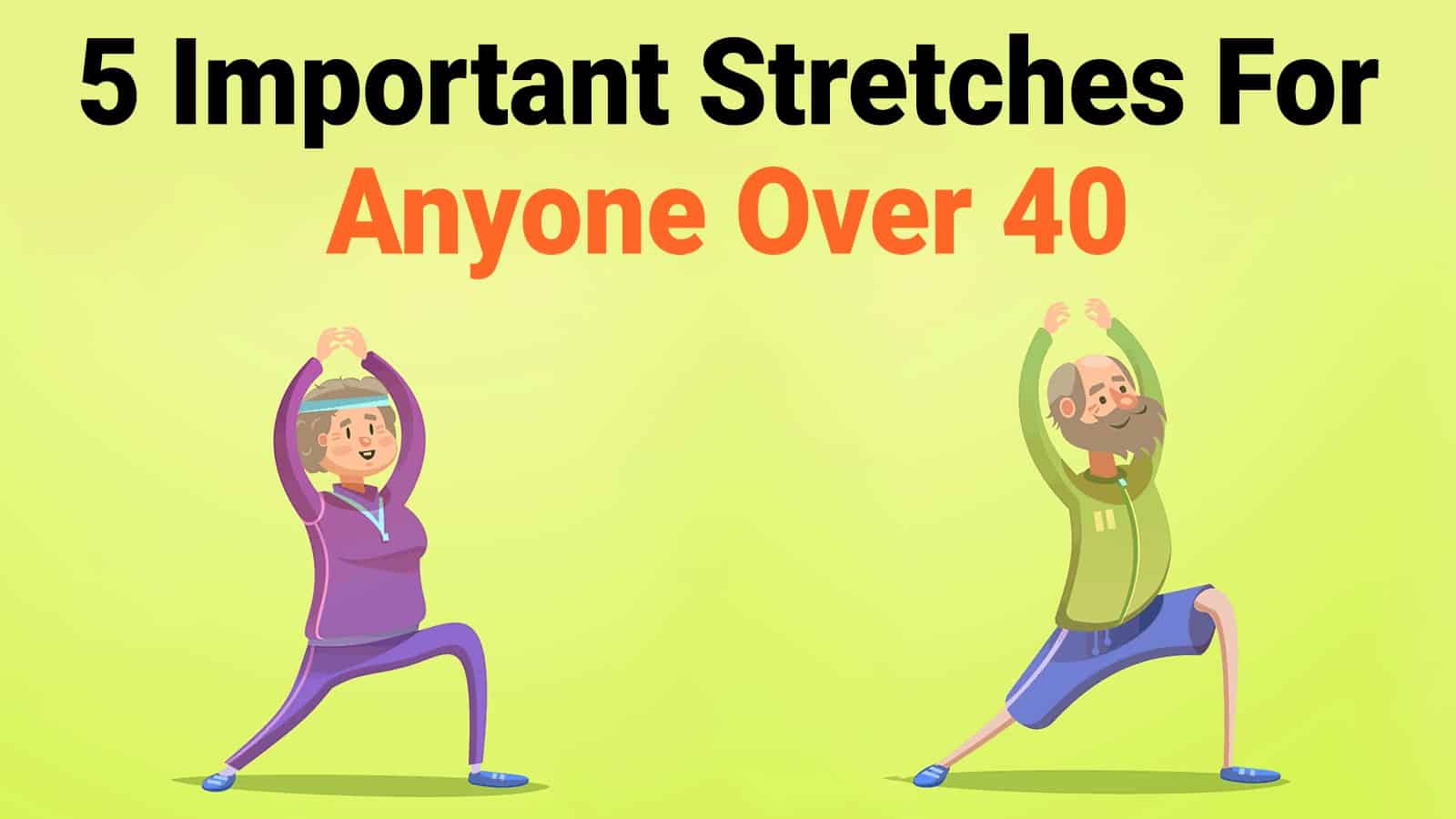The importance of doing stretches
Many of us think of stretching as a quick routine performed before working out. This perception is wrong.
“A lot of people don’t understand that stretching has to happen on a regular basis. It should be daily, “says David Nolan, a physical therapist at Massachusetts General Hospital.
Stretching our bodies becomes more important as we age since we’re more prone to aches and pains. The occasional ache or pain is nothing to worry about, but it’s still a good idea to stretch for keeping our body limber and feeling better.
Though this article focuses on five good stretching exercises for the 40-and-over crowd, we can all benefit from incorporating them into our daily routines. Perform each stretch 4-5 times per week.
“Stretching keeps the muscles flexible, strong, and healthy, and we need that flexibility to maintain a range of motion in the joints. Without it, the muscles shorten and become tight. Then, when you call on the muscles for activity, they are weak and unable to extend all the way.” – Harvard Health Publications
5 Stretches To Remember If You’re Over 40
1. Shoulder Rolls
Shoulder rolls, a straightforward exercise, helps maintain and increase the range of motion in your arms and upper back.
Rob Danoff, D.O., a physician and program director at Philadelphia’s Aria Health System, says, “(Shoulder rolls) help diffuse tension and open up your ribs for easier breathing.”
How: (a) Slowly and naturally roll your shoulders forward in big circles. (b) Perform 10 repetitions and then reverse the motion and do another 10 reps.
You don’t want to feel any trembling (shakiness) when doing the exercise; if you do, stop for the time being and try again tomorrow.
2. “Cat and Cow”
Rachel Southard, a director of personal training, states that one of the most common complaints she hears from the 40-plus crowd is back pain. As we age, it is essential that we stretch the upper, mid, and lower sections of our back.
The Cat and Cow exercise helps create and maintain mobility of the spine. Southard explains the importance of spinal mobility, “We use our core muscles – which wrap around the truck and include the abdominals as well as the muscles in our (lower) back – all day long to sit up, walk, bend, and lift things.”
How:
(a) On the floor, (it may be more comfortable to use a mat) assume the “hands and knees” position, down on all fours. Square the shoulders with your hands and the knees with your hips.
(b) Push into the ground with your hands, pull your abdominals up and in, lowering your head [Like an upside-down ‘U’].
(c) Lift your chin and tailbone to the sky, creating an arch, while dropping your belly towards the floor.
(d) Assume the starting position and repeat 10 times.
3. Neck Stretches

Stretching the neck is crucial for increasing mobility and avoiding painful strains. Neck stretches also increase strength, release tension, and help maintain flexibility.
How:
Perform each two-part movement 5-10 times.
(a) Look straight ahead and square the shoulders.
(b) Slowly turn your head to the left as far as possible, keeping your shoulders square.
(c) Return to position (a) and perform the same movement on the right side.
(d) Hold position (a) and perform the same movement up and down (like a slow, dramatic head nod.)
(e) Hold position (a) then tilt your neck to the left side as far as possible. Reassume starting position and perform the same movement on the opposite side.
4. Hip Flexor Release

According to Ms. Southard, most of us neglect to stretch our hip flexors, the areas of the leg responsible for (you guessed it) extending the hips. Hip pain can be tremendously burdensome; neglecting our hips can lead to muscular degeneration, and may eventually require a hip replacement.
So, let’s stretch those hips!
How:
(a) Place your left knee on the floor (again, a mat may help) and move your right foot toward until you’re in a lunge position.
(b) Keeping your right foot flat, lower the left hip toward the floor until you feel a stretching in the flexor area. Hold this position for 30-60 seconds.
(c) Switch sides – the left foot in front and drop the right hip.
5. Quad Stretches
Quadriceps are the largest muscle in the leg – located at the top of the thighs. They’re also the strongest and leanest muscle in your legs; making them very important to stretch.
So let’s do it! Stand near something that you can hold to gain/regain your balance. You may also hold onto something if you wish.
How:
(a) Starting position is your upper body and head square; stomach muscles engaged.
(b) Maintaining position (a), lift your left leg back and grab the top of your right foot.
(c) Holding position, pull your foot up towards your bottom. Keep your knee down and pointed to the ground. Hold this position for 15-30 seconds.
(d) Switch and repeat the movement. Perform 3-5 times with each leg.
https://www.youtube.com/watch?v=EJ-lJUts83U


















